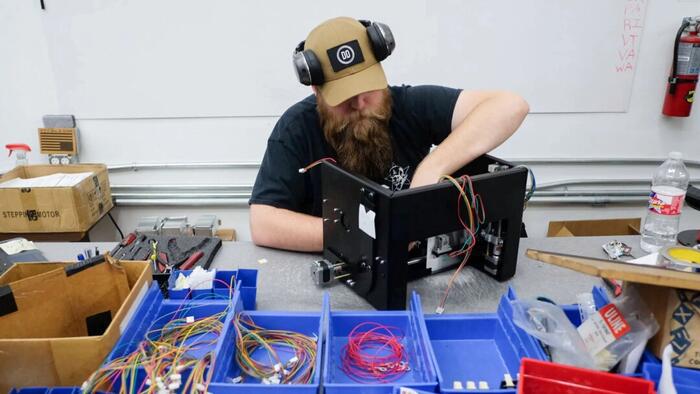A recent legal battle between California and a Texas-based company, Defense Distributed, centered on the production of untraceable firearms known as ghost guns, has drawn significant attention. On October 4, U.S. District Judge Anthony J. Battaglia denied Defense Distributed’s request to transfer the lawsuit from California to Texas, asserting that California is the primary party in interest. The ruling means that the case will proceed under California’s stringent gun laws, contrary to the company’s position that sought to defend their operations within the more lenient regulatory environment of Texas, where the company is based.
Defense Distributed, along with its affiliates Coast Runner Industries and Ghost Gunner, argued that the lawsuit brought by California was influenced by the Giffords Law Center, a nonprofit advocating for gun control. However, Judge Battaglia dismissed their claims regarding the legal standing of California as a plaintiff. The ruling emphasized that the defendants failed to demonstrate valid grounds for removing the case to federal court, reinforcing the state’s authority in regulating matters concerning firearms under its jurisdiction.
The primary contention revolves around the manufacture of CNC milling machines that facilitate the assembly of firearms from unfinished parts, thereby allowing individuals to create their own guns without serial numbers. These ghost guns are often untraceable, presenting challenges for law enforcement. California’s lawsuit, brought forward by the County of San Diego, alleges that Defense Distributed and its affiliates directly target Californian consumers, violating state law that mandates all firearms to possess serial numbers.
To combat the rising issue of ghost guns, California implemented Assembly Bill 857, which necessitates that those who manufacture or construct their own firearms apply for a serial number from the Department of Justice. This legislation was first enacted in 2016 and has since been modified to enhance regulation in response to an alarming surge in ghost gun recoveries—from only 26 in 2015 to nearly 13,000 in 2022. This dramatic increase is highlighted by the fact that ghost guns are reportedly involved in a significant portion of criminal incidents across major Californian cities.
In his ruling, Judge Battaglia acknowledged the serious public safety risks posed by the proliferation of ghost guns, noting that law enforcement agencies across California indicated that ghost guns represent a large percentage of firearms recovered from crime scenes. In response, California seeks an injunction to stop Defense Distributed from selling ghost gun producing machines in the state, as well as financial penalties for purported violations of state firearms regulations.
Defense Distributed and its affiliates, on the other hand, maintain that their products remain legal under federal law and assert that California’s regulations infringe upon Second Amendment rights. Following the ruling, Ghost Gunner’s website communicated that while they believe their machines are legal to acquire in California, they are suspending direct sales to customers in the state, suggesting that consumers look for alternative suppliers. The ongoing case underscores the broader national debate regarding gun control, individual rights, and public safety, particularly in the context of untraceable firearms.

